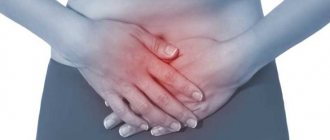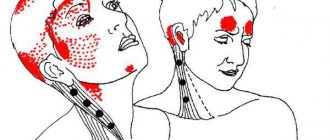What is stress and where does it come from?
We are accustomed to perceiving stress as something negative, but in fact it is simply a reaction of the body, a response to overstrain, strong emotions, both positive and with a negative connotation. In this condition, the hormone adrenaline is actively produced, forcing a person to think about the situation and look for a way out of it. Causes of stress can be :
- conflicts with colleagues, relatives, friends;
- dissatisfaction with yourself, your achievements or appearance;
- constant lack of money, debts;
- routine lifestyle without vacation, proper rest;
- illness or death of a loved one;
- job loss;
- loneliness.
Recently, stressful conditions have often developed against the backdrop of the coronavirus pandemic. This is caused by a constant fear of getting sick, a strong concern for loved ones, and the inability to maintain the usual way of life.
But do we know what stress is?
Stress is a human condition that occurs as a reaction to any events or demands that are difficult or impossible for a person to cope with.
How to get pleasure hormones
Many people think that the most vivid sensations come from alcohol and drugs, but in fact there are many ways to get your own, natural “pleasure hormones.”
Psychologists differentiate stress by power.
Great stress
occurs in response to situations that pose a threat to life or its usual way of life: natural or man-made disasters, war, captivity.
Significant personal events can be the cause of great stress: the death or serious illness of a loved one, divorce, major financial losses, forced migration or job loss. Low stress
can be caused by a wide variety of everyday situations and problems that a person cannot solve or requires special effort to do so. Such stress should not be underestimated, because if a person experiences stress of low intensity for a long time, then the harm to his health can be comparable to the effects of severe stress.
How does stress develop?
But when stress occurs too often or exceeds the body’s capabilities, it begins to weaken and lose strength.
It can even lead to serious illness. three phases in the development of stress :
- mobilization of the body's defenses and resources to combat the stress factor. At this stage, hormones are released that give a boost of energy;
- confrontation - searching for a way out of the situation. The body tries to return to normal functioning due to hormonal changes;
- exhaustion – with prolonged exposure to traumatic circumstances, the body loses the ability to resist, adapt and becomes vulnerable to all kinds of diseases.
The severity of each stage depends on the individual characteristics of the person, his state of health, type of temperament, character.
Treatment
First of all, it should be mentioned that stress can be avoided. You can start treatment yourself. To do this, you need to learn to cope with stressful situations. It is necessary to use relaxation techniques or deep even breathing. Simple physical activities, such as simple exercises, will improve health and increase a person's ability to resist. Eliminating harmful substances (coffee, alcohol, nicotine, etc.) from your life will reduce anxiety. It is imperative to learn how to cope with your phobias. This will be taught by qualified doctors of the Rehab Family clinic, recognized in Europe and America. The rules guarantee complete confidentiality. The Rehab Family clinic is distinguished not only by effective treatment methods, but also by providing comfortable conditions for the complete adaptation of patients.
At the beginning of treatment, it is necessary to discuss its stages with loved ones, explain your actions and emotions, so that they can also help or, at least, not interfere. The treatment prescribed by the doctor must be strictly followed. Its course is usually observed in dynamics during visits. Patients of the Rehab Family clinic can seek help at any day and time. The disease, like our doctors, has no holidays.
Symptoms and signs of stress
There are a number of symptoms that
appear in most people who find themselves in a state of stress. Physiologically this manifests itself in:
- a sharp drop or, conversely, an increase in pressure;
- attacks of chills or fever;
- increased sweating;
- dizziness;
- digestive disorders;
- significant weight gain or loss;
- muscle hypertonicity and tremor (shaking).
Headaches, pain in the stomach and back often occur, and rashes similar to allergic ones may appear. Stress is accompanied by loss of sleep and appetite .
How does stress affect the body?
Severe or prolonged stress may well cause the development of diseases.
In this case, the most weakened systems of the body suffer, so the consequences vary from person to person. Against the background of a stressful state, the following may develop :
- bronchial asthma due to constant tension of the muscles involved in the respiratory system;
- hypertension, heart and vascular diseases due to constantly high blood pressure and rapid heartbeat;
- peptic ulcer;
- neurotic and depressive disorders;
- damage to the gastric mucosa due to increased production of gastric juice;
- diabetes – due to the liver releasing an additional portion of glucose and increasing its concentration in the blood;
- gynecological problems up to infertility.
It is impossible to predict exactly what problems stress will provoke. Moreover, they can appear individually or in groups, or all at once, in a complex.
Severe emotional distress can affect anyone. Psychologists have developed a stress scale that includes the main traumatic categories. The first places on the scale are the death of a relative or friend, divorce and loneliness. In last place are family quarrels, promotions and weddings. Even positive life events can cause increased stress.
The main symptoms of severe stress:
- A person becomes fixated on negative events. His thoughts are occupied with disturbing experiences; the shock he has experienced cannot be removed by simple means, for example, physical activity.
- The expression of emotions is impaired. A person is irritated, prone to outbursts of anger and rage, symptoms of stress indicate a weakened nervous system. Some symptoms indicate dulling of feelings, the inability to experience joy, orgasm, or enjoy life.
- Interpersonal communication is destroyed. After suffering a trauma, an individual breaks off friendships, avoids communication, and strives for loneliness.
- Severe intensity of stress provokes the development of mental illness. People at risk include survivors of childhood violence, victims of violent crimes and others. In this case, the symptoms are associated with adaptation disorders. A severe shock is reflected in dreams and becomes a deep inner experience.
- Abuse of alcohol, toxic and narcotic substances.
- Suicidal thoughts.
Symptoms of severe stress are more acute in women and older people. In childhood, on the contrary, boys experience emotional trauma more painfully than girls.
How does extreme stress affect the body?
The consequences of acute experiences also affect health. It can be difficult to relieve symptoms after stress, since a person turns to specialized specialists, but does not treat the main cause - anxiety. The main signs of the effects of stress on the body:
- Increased blood pressure, headache, tachycardia.
- After experiencing a shock, the functioning of the immune system is disrupted and the body’s protective functions are reduced.
- The consequences of stress manifest themselves in the form of diseases of the gastrointestinal tract. Heartburn, gastritis, stool disorders, constipation - this is an incomplete list of stomach diseases due to severe anxiety.
- Women experience symptoms of thrush, dryness and burning during sexual intercourse. Some women experience menstrual irregularities.
- The skin suffers. Eczema, itching, rash of unknown origin are consequences after experiencing stress.
Symptoms may indicate deep trauma, such as pain during intercourse after abuse. You should not overestimate your strengths and capabilities to get out of stress on your own, since you are not able to adequately assess the situation, since you are under stress. In most cases, people who have experienced a tragedy need psychotherapeutic treatment, and this can only be done by a specialist psychologist with a medical education.
Use the services of a psychologist in the psychophysiological support laboratory of the State Budgetary Healthcare Institution “SOCMK”:
1. Psychophysiological examination for persons in hazardous professions
2.Psychological assistance in difficult life situations (accidents, injuries, grief of loss, etc.)
How to avoid stress?
The effect of serious stress on the body is clearly negative. But doctors and psychologists have perfectly studied the mechanism of development of such conditions and have found many ways to prevent and combat them. The most interesting thing is that there is nothing complicated about preventive measures. For example, the following help prevent stress :
- morning exercises, regular sports training, especially those related to water (swimming, water aerobics);
- regular rest, preferably in nature;
- reasonable planning of the working day - alternating periods of intense work and proper rest;
- healthy sleep - at least 7-8 hours a day, not once a week, but every day;
- complete nutrition.
As you can see, these are typical tips for those who want to lead a healthy lifestyle
. Hence the conclusion: it is he who is the most terrible enemy of stress.
How to help yourself?
But if you constantly worry about one thing or another, neither 8 hours of sleep nor proper nutrition will help protect you from stress.
This means you need to pay attention to your mental health. First, you need to determine exactly what exactly worries and excites you, i.e. find the cause of stress. Having identified the source of the problem for yourself, look for ways to distract yourself, switch to pleasant activities, for example, meeting with friends, reading, going to the theater or concert. It also happens that the source of stress is part of your life, and there is no way to change it. But even in such a situation, no one bothers you to change your own attitude towards circumstances. It wouldn’t hurt to analyze your experiences, but do it as if from the outside. It is quite possible that it will turn out that the events that took place are not at all worth such strong emotions. Try to focus on the positive
,
because when we are upset, life situations seem much worse than they really are.
Stress and ways to cope with it
The acceleration of the rhythm of modern life has led to a significant increase in the physical, mental, and emotional stress on a person, caused by everyday problems, interpersonal relationships, the content of professional activities, and information overload. Quite often a person has to be in a state of emotional stress, experience a feeling of increased anxiety, restlessness, self-doubt, i.e. experience so-called STRESS . Such conditions are often accompanied not only by mental imbalance, but also by a number of negative changes in the functioning of physiological mechanisms in the human body. According to WHO, up to 40% of the world's population needs the help of medical specialists.
WHAT IS STRESS, WHAT ARE THE REASONS AND FACTORS OF ITS APPEARANCE
The term “ stress ” (translated from English stress) means “pressure, pressure, tension.”
According to the Big Explanatory Dictionary of the Russian Language, “ Stress is a state of tension in the human or animal body as a defensive reaction to various unfavorable factors (cold, starvation, physical and mental trauma, etc.).”
At its core, stress is the human body’s response to overstrain, negative and positive emotions. During times of stress, the human body produces the hormone adrenaline, which forces us to look for a way out. Everyone needs stress in small quantities, as it makes you think, look for a way out of the problem, and in this case it has a positive meaning. But on the other hand, if there is too much stress, the body weakens, loses strength, the ability to solve problems and can cause serious illnesses.
Stress can be divided into:
- Positive and negative - according to the degree of emotional coloring.
- Short-term and long-term (or acute and chronic) - by duration.
- Physiological and psychological - the latter, in turn, are divided into informational and emotional due to the reason for their occurrence.
Sources of stress can be:
External - moving to a new place of residence, changing jobs, death of a loved one, divorce, everyday troubles associated with money problems, fulfilling obligations by a certain deadline, disputes, family relationships, lack of sleep.
Internal – revision of life values and beliefs, change in personal self-esteem, etc.
The causes and factors causing stress (psychologists call them stressors) are varied and numerous:
- changes in life (vacations, new job, marriage, divorce, etc.);
- any strong emotion;
- fatigue;
- physical injury, surgery, illness;
- noise;
- sudden changes in temperature, etc.
Changes of any kind, even positive ones, force us to adapt to new circumstances. But with all the variety of experiences and shock situations that happen in our lives, the body’s reaction to any stress is essentially the same - the body triggers biochemical processes developed many centuries ago, the purpose of which is to cope with an extreme situation. Over time, the effects of stressors add up and accumulate. The more of them in our lives at a given period, the higher our stress level will be.
The body's defense response to ongoing or repeated stressors goes through three distinct stages.
- In the first stage - the alarm reaction (in response to irritation, regardless of its nature), all body systems are activated.
- In the second stage - the stage of resistance (resistance, stability), the body begins to adapt to the ongoing effect of the stressor.
- The third stage is the stage of exhaustion, which occurs with prolonged exposure to a stressor. The energy required for adaptation is depleted, and the body’s overall resistance drops sharply. If help is not provided during this period, the exhaustion stage can result in serious illness and even death.
SYMPTOMS OF STRESS AND POSSIBLE CONSEQUENCES FROM IT
Symptoms may gradually worsen or occur suddenly within minutes. Attacks of anxiety, restlessness, and panic appear, which usually do not last long and occur in the form of emotional outbursts, accompanied by a feeling of horror and body reactions such as increased heart rate and sweating. Anxiety usually develops gradually. Symptoms may also include muscle tension, fatigue, irritability, impatience, insomnia or sleep disorders, difficulty concentrating, low mood, or, conversely, overexcitement, anger, memory impairment, increased fatigue, etc.
Stress is the main risk factor for the occurrence and exacerbation of many diseases: cardiovascular (myocardial infarction, angina, hypertension), gastrointestinal tract (gastritis, gastric and duodenal ulcers), decreased immunity.
Negative reactions are caused not only by strong, acute, but also by small, but long-term stressful influences. Therefore, prolonged psychological stress and depression can also lead to illness.
Treatment of stress with medications is indicated only as prescribed by a doctor. Taking into account the patient's condition, the doctor may prescribe sedatives (medicines that reduce nervous tension and anxiety, as well as reducing feelings of fear) or tranquilizers (medicines that help relieve emotional stress).
WAYS AND PRINCIPLES OF OVERCOMING STRESS
Each of us has our own level of stress, which is determined by hereditary and other factors, and our own level of attitude and response to stress.
Different people respond to stress in different ways: some begin to absorb incredible amounts of food, others completely lose their appetite; some have difficulty falling asleep at night, while others experience sleepiness even during the day.
The basic principles of overcoming stress include:
- Distraction from a stressful situation - if what is happening makes a strong impression on a person and after that he continues to think about it, then he thereby “gets stuck” on the stressful situation and does not think about how to resolve it, but is constantly worried about the events that happened. To distract yourself from a stressful situation, you need to think about something else related to pleasant sensations and experiences (rest, a pleasant event, personal achievements).
- Reducing the subjective significance of the event that caused stress - reconsider your attitude towards what happened according to the principle: “What is not done is for the better...”.
- Active behavior - do not keep in yourself the surging feelings and emotions that caused stress, but throw out the accumulated energy by doing something even unthinkable (for example, washing a window or floor with a toothbrush, wiping clean dishes, etc.); as well as playing sports, playing football, volleyball, etc.
- Ability to relax - stress causes general tension and an increase in the frequency of brain waves. Relaxation, on the contrary, reduces their frequency, which leads to a decrease in the level of excitation of the central nervous system.
- Positive thinking - a positive way of thinking and the associated positive emotions of kindness, love, joy - is the main personal tool for ensuring health and well-being.
Other ways to relieve stress and maintain mental health include:
- In any situation, you should remain optimistic.
- Strive for reasonable organization in life, work, and everyday life.
- Learn to say no to yourself, not to take on too many problems, especially those of others, by defining the boundaries of your own capabilities.
- Learn to enjoy life.
- Don't be a maximalist.
- Don’t delve into your past, and especially don’t regret what you didn’t do once or did wrong.
- Maintain proper diet, sleep and rest.
- Do not abuse alcohol, refrain from bad habits.
- Lead a healthy active lifestyle , doing daily physical exercise and self-massage of the head, neck, shoulders, and feet.
- If necessary , slow down the pace of life and reconsider some life positions.
Remember! It is impossible to completely eliminate stressful situations from life, but you can live and work in such a way as to reduce their number to a minimum, minimize their consequences and thereby maintain health for many years.
If all else fails
But what to do if you signed up for fitness, walk the dog for a long time every evening, go to bed no later than 23.00 and are seriously interested in knitting, but you still can’t cope with stress? First of all, don’t despair
and don’t get depressed.
If you don't know how to change a faucet, you call a plumber, right? It’s the same with stress: if you couldn’t resolve the issue on your own, contact a psychotherapy specialist .
psychotherapeutic techniques are used to combat stress ,
so you will have the opportunity to choose what suits you:
- Cognitive-behavioral therapy – psychological training that allows you to identify negative thoughts, analyze them, change your behavior pattern, attitude towards a specific situation;
- art therapy – the so-called “art treatment”, which allows you to throw out emotions and understand yourself;
- auto-training – training in methods of controlling breathing and muscle tone, changing internal attitudes.
There are a lot of such methods; an experienced specialist will definitely help you choose the most suitable and effective option.
Help from a psychologist for stress
A psychologist’s help with stress can be used in two ways:
- If any new situation is stressful for you. You often experience a state of causeless anxiety, are depressed, irritable, depressed in the absence of objective reasons. For you, there are a large number of stress factors of psychological origin. Stress is not caused by objective reasons, but by your subjective assessment of what is happening, expectation of the worst consequences, etc. In this case, sessions with a psychologist will help change your assessment of what is happening and reduce the amount of stress of psychological origin.
- Neutralizing the effects of stress. Classes with a psychologist in this direction will help if you have already experienced severe stress , your energy reserves have been depleted, and you feel the need to recover. It is also important to work through and understand the emotional causes of the psychosomatic illness that has arisen in order to prevent its further development.
Amber Center specialists have experience in successfully working with the causes and consequences of stress. After a psychological diagnosis, a psychologist (psychotherapist) will develop an individual training route and, if necessary, give exercises for independent work at home.
Make an appointment with a specialist by calling (812) 642-47-02 or fill out the application form on the website.











